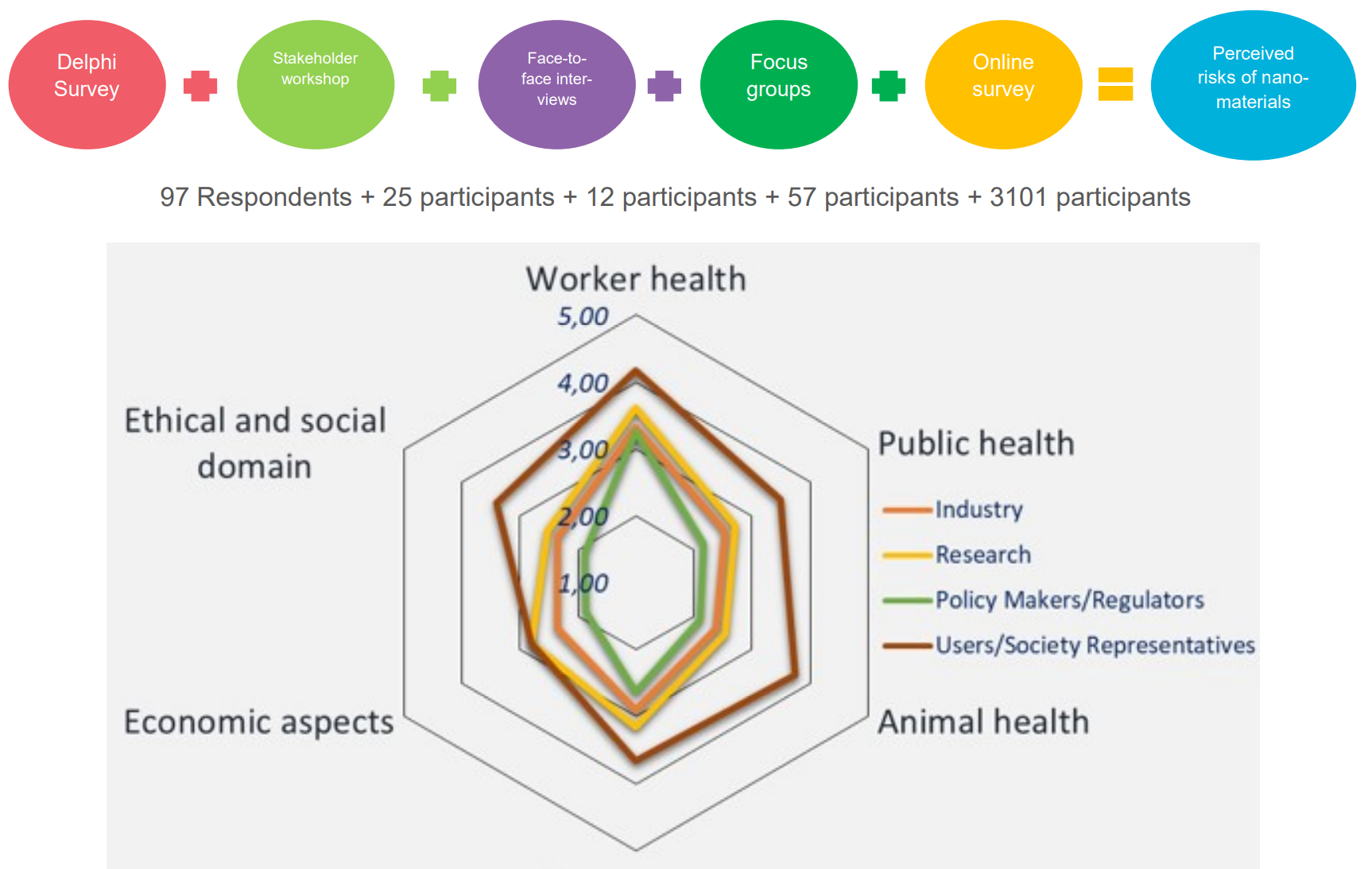What do the stakeholders say?
Nearly all technologies and applications - new and established - are perceived and seen differently by public, specifically when looking at their risks and dangers.
In the caLIBRAte project, partners examined the attitude of public to shed light on what people in Europe think about Nano related products and Nanomaterial, what they feel, and what would they like to know.
Under the caLIBRAte project, a representative online survey was conducted in three European countries, along with small group interviews with citizens, and expert interviews throughout 2017-2019. The results from the exercise were valuable and surprising, and it was possible to compare the results with previous studies. Key highlights include:
- The development of nanotechnology was considered as a significant opportunity for improving products and systems by almost all the stakeholders who were involved in the study.
- However, citizens saw risks related to nanomaterials and nano-related products when in direct contact with body, for example absorbed through skin, inhaled or ingested. These include applications in sectors such as cosmetics, clothes, baby accessories, agri-food, textile and medical products.
In general, the general public feels that the whole of society (and thus also the research community) has a strong responsibility, with a priority to avoid possible adverse effects of nanotechnology on the future generations.
Access to reliable information and guidance on safe handling, use and disposal of Nanomaterials and nano-related products (sector and application specific) were considered essential by the stakeholders.

Source: H2020 caLIBRAte Project
Excerpts from the Stakeholders during the caLIBRAte surveys:
|
“Well I hope that nanotechnology can help make every day a little more comfortable for us all and maybe also even healthier, who knows.”
“I don’t much about nano, but I am very concerned about the health consequences and the environmental impact …”
“I presume that the products which have come onto the market and have nanomaterials are tested. We are making a lot of progress, but it turns out that we are not doing all the tests. What am I buying?”
|
“We should have learned from the "Late lessons from early warnings", that impacts on health and the environment should consider the whole life cycle of substances. OECD Working Party on Resource efficiency and waste report and latest findings make it very clear
that information relating to the fate of nano waste is extremely limited, and inadequate to ensure proper disposal (i.e.: without any negative health or environmental impacts).”
“Any company (regardless of size) willing to introduce untested (whether nano or not) substances or substances for which too little information is available to provide adequate risk assessment should take responsibility for accepting such uncertainty and ensure that any risk is minimized as much as
possible.”
|